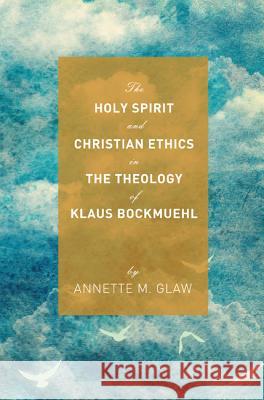The Holy Spirit and Christian Ethics in the Theology of Klaus Bockmuehl » książka
The Holy Spirit and Christian Ethics in the Theology of Klaus Bockmuehl
ISBN-13: 9781620324011 / Angielski / Miękka / 2014 / 316 str.
The Holy Spirit and Christian Ethics in the Theology of Klaus Bockmuehl
ISBN-13: 9781620324011 / Angielski / Miękka / 2014 / 316 str.
(netto: 166,23 VAT: 5%)
Najniższa cena z 30 dni: 174,06
ok. 16-18 dni roboczych
Dostawa w 2026 r.
Darmowa dostawa!
Description: Klaus Bockmuehl (1931-1989), former Professor for Systematic Theology at Regent College, Vancouver, published outstanding theological ethical works. The questions that Bockmuehl explored have not lost any relevance: How do we know what God's will is in a particular situation? Is Scripture sufficient for ethical decisions or should we listen to God? Does God even speak today? Is there a distinctive Christian ethic? Bockmuehl's central contribution can be found in his emphasis on the seminal role the Holy Spirit plays within Christian ethics, not only as the one who realizes the reign of God in the life of the individual but also as the one guiding the individual in a particular situation. This book is the first in-depth study of Bockmuehl, introducing readers to his theology and ethics, including a short biographical overview, delineating and appraising how he understands the role of the Holy Spirit in Christian ethics. It is not a book without criticism and its own creative contribution. Annette Glaw concludes her fascinating study with a proposal for a relational concept of the Holy Spirit as the loving presence of God in Christian ethics.
Description:Klaus Bockmuehl (1931-1989), former Professor for Systematic Theology at Regent College, Vancouver, published outstanding theological ethical works. The questions that Bockmuehl explored have not lost any relevance: How do we know what Gods will is in a particular situation? Is Scripture sufficient for ethical decisions or should we listen to God? Does God even speak today? Is there a distinctive Christian ethic? Bockmuehls central contribution can be found in his emphasis on the seminal role the Holy Spirit plays within Christian ethics, not only as the one who realizes the reign of God in the life of the individual but also as the one guiding the individual in a particular situation. This book is the first in-depth study of Bockmuehl, introducing readers to his theology and ethics, including a short biographical overview, delineating and appraising how he understands the role of the Holy Spirit in Christian ethics. It is not a book without criticism and its own creative contribution. Annette Glaw concludes her fascinating study with a proposal for a relational concept of the Holy Spirit as the loving presence of God in Christian ethics.











